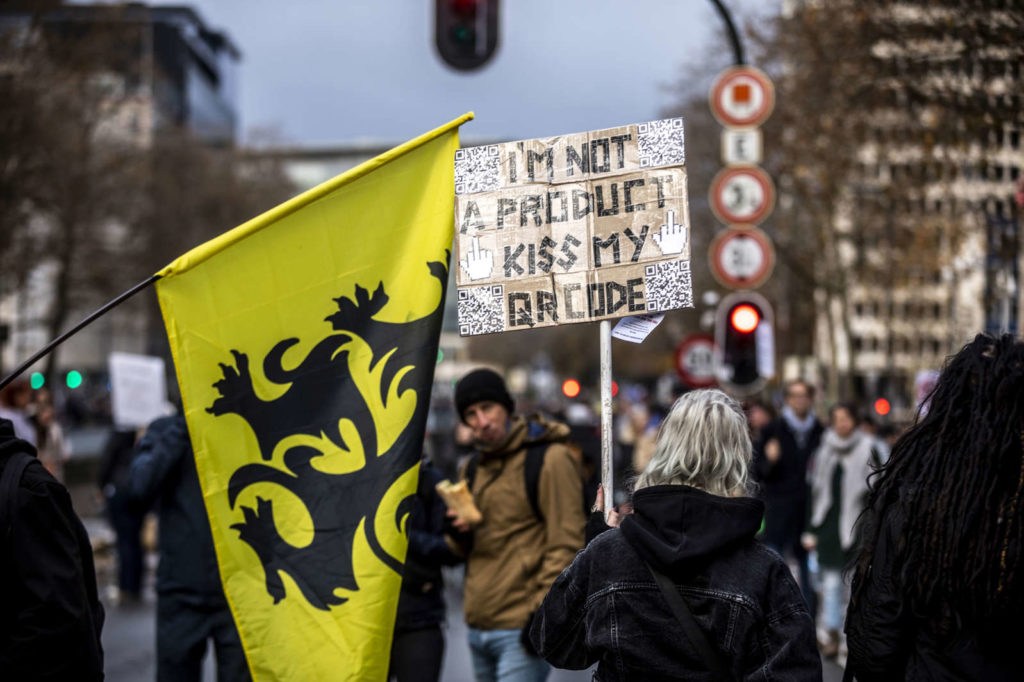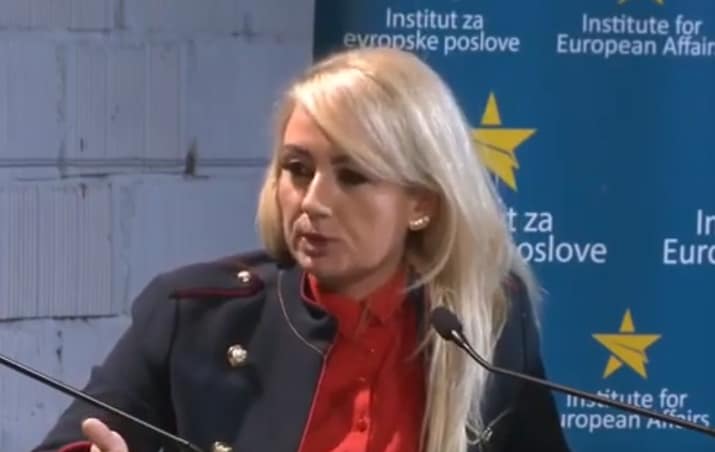Sarah Melis: There are currently various protests in the countries of Europe
Note: On February 5th, a protest is scheduled in Brussels
The Center for Geostrategic Studies spoke with protest organizers about the upcoming event
Sarah Melis, spokesperson for the organization „Together for Freedom“ from Belgium, is in the organizing committee of the protest scheduled for February 5 in Brussels.
The interview was conducted by Patrick Poppel, an expert from the Center for Geostrategic Studies from Austria

Photo: Sara Melis at a protest in Brussels
Why are you going to protest in Brussels?
Brussels is known as the capital of Europe, also the city where the European Union is housed. We want to show that Europe is its people, not just the institution that does not represent us anymore.



